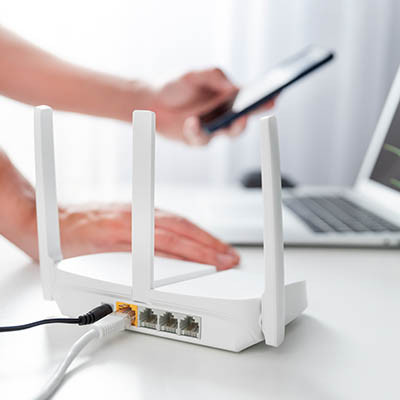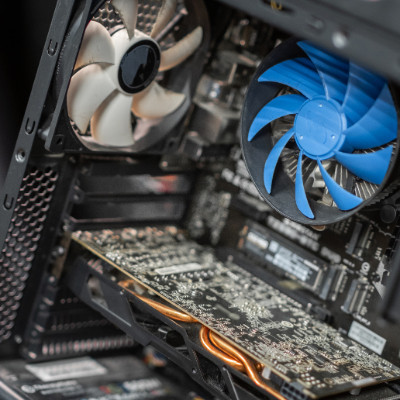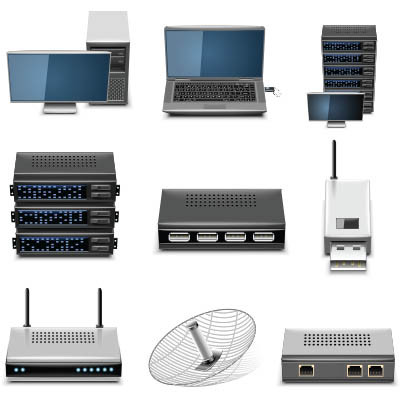Artificial Intelligence (AI) has moved from science fiction to a daily reality, fundamentally reshaping how we work and communicate. Yet, behind every groundbreaking AI application lies massive infrastructure in the form of data centers. These sprawling facilities, packed with servers, storage, and networking equipment, aren't just filing cabinets for data; they are the engines that make AI possible. Today, we are going to look at the data center and the pros and cons society will see from the expansion of AI.
Tritek Networks Blog
Your network powers your business, so it makes sense that you would want to treat your networking hardware with the respect it deserves. Today, we want to explore some of the common networking solutions out there and how easy it can be to neglect them after the initial setup. Furthermore, we want to emphasize the importance of treating your networking as a priority; remember, your business runs on its network, and if it’s not performing well, all other areas of your business will suffer.
Wi-Fi is everywhere, and only when it’s not available (and you’re in a location where you cannot get cell service) do we realize just how much of a luxury it is to have a solid connection. You can give your team the solid wireless connection it deserves by carefully selecting where you place your organization’s router. Here are a few tips you can consider when placing your office’s wireless router.
It's a fact that computers generate heat. From the laptop fan whirring away on your desk to the massive arrays of servers powering cloud computing and AI, these machines require cooling to function optimally. As our reliance on the cloud expands, however, the sheer scale of this cooling requirement is transforming into a significant environmental and financial burden.
You might want to get as much life as possible out of your technology, but this is often counterproductive. While it might cost serious capital to invest in new computers and servers, even when your current equipment works “just fine,” there will come a day when “just fine” doesn’t cut it anymore. Your outdated hardware comes with all kinds of hidden costs that will slowly leech capital from your business and leave it worse off compared to if you just bought new tech.
The phone is a critical piece of business communications, but it has traditionally been a consistently stationary piece of technology for most of its existence. Basically, if you were anywhere but your desk, you couldn’t answer any important calls or listen to your messages.
Now that remote and hybrid work are pretty accepted, this is unacceptable, but there’s a far better option. Let’s explore how an upgrade to a modern Voice over Internet Protocol (VoIP) telephone system is the route that savvy businesses take.
Your business runs on its network, and when your network hardware isn’t running up to speed, it can have a significant impact on business operations. It’s also far from the most interesting topic, and other parts of your business—like the software that makes and manages the products or services you provide—likely takes up the spotlight. Here are some of the common networking solutions that are often neglected and why they should be a priority instead.
Listen closely. Hear that? It's the subtle, almost invisible hum of technology, the tireless engine powering your sales, streamlining your communication, and orchestrating your daily operations. We've all become wonderfully reliant on this digital symphony. Here’s a thought that might not hum so quietly: what’s the environmental encore of all this tech that keeps our businesses thriving? It’s a conversation that’s not just worth having; it’s essential.
As an information technology provider, we are tasked with helping your business make the best decisions possible related to your IT infrastructure. In this role, we offer a gentle recommendation that you purchase hardware you expect to need over the next year as soon as possible. If you don’t, you might be left high and dry without any good options to choose from.
Do you have any technology-related projects that require hardware acquisition? It’s a great time to consider it now, especially considering the expected increase of computing hardware costs. Working with a project management team like Tritek Networks can take out some of the risk, responsibility, and financial burden you might have for any new hardware acquisition during the project management cycle.
Keeping track of your business’ technology is very important for smooth operations and long-term success. You need to monitor every piece of your technology to avoid wasting money and facing security issues. A good inventory system helps you know what technology you have, where it's being used, and when it needs maintenance or replacement. This ensures your team has the right tools when they need them, which helps boost productivity and growth.
Computer problems aren’t just annoying, they are a major impediment to a business’ overall productivity. There are several common problems that can slow down your computer, each with its own signs, causes, and fixes. This month we’re going to look at some of these problems and what the solutions are for them.
Now that smart mobile devices are a mainstay in business, the landscape will never be the same again. Your organization needs to have a plan to acquire, manage, maintain, and secure these devices. Businesses generally choose either Bring Your Own Device (BYOD) or Corporate-Owned, Personally Enabled (COPE), depending on their needs.
Keeping track of your organization’s technology can actually be more difficult than you may think. First of all, most businesses aren’t that worried about their technology as long as it works as designed. Secondly, technology tends to move in and out of an organization pretty fast. In this month’s newsletter, we are going to go into some steps you need to take to get a handle on your technology inventory.
If you've been in the market for upgrading your hardware, be it a new graphics card, CPU, or even a laptop, you might have experienced something alarming: soaring prices. The once-stable cost of computer hardware has been inflated recently, leaving consumers frustrated that they can't find the hardware they are looking for at reasonable prices. Let's briefly go into what's causing this unprecedented spike in hardware prices and how we can help you navigate through it.
Selecting the right servers for your business is extremely important and can either promote optimal performance, reliability, and security of your business computing; or it can present nothing but problems. Today, we will go through six tips to help you make good decisions about servers for your business.
All businesses depend on the Internet in at least some capacity, and it’s so commonplace and accessible these days that people often take it for granted. However, a lot of work goes into making sure that the infrastructure you know as the Internet remains accessible and operational. Let’s go over the hardware you’ll need to ensure you stay connected.
Your IT is a big deal, even if you don’t think it is. Managing IT is indeed a substantial and often complex responsibility that can be more extensive than some business owners initially realize. It demands your attention, and not just because you pay for it, but because a properly managed IT strategy can have major benefits for your business. A realistic perspective can go a long way toward setting you up for success. Let’s outline some ways your business can lose control over its technology budget.
In recent years, educational institutions have widely adopted the regular use of laptops in the classroom, and with budgets being a pressing concern for many of these institutions, the cost-sensitive nature of Chromebooks make them an excellent option… at least, that would be the assumption. However, this is not the case in the slightest, as the software that powers these devices regularly reaches its end of life, despite the hardware being perfectly capable of more.




















